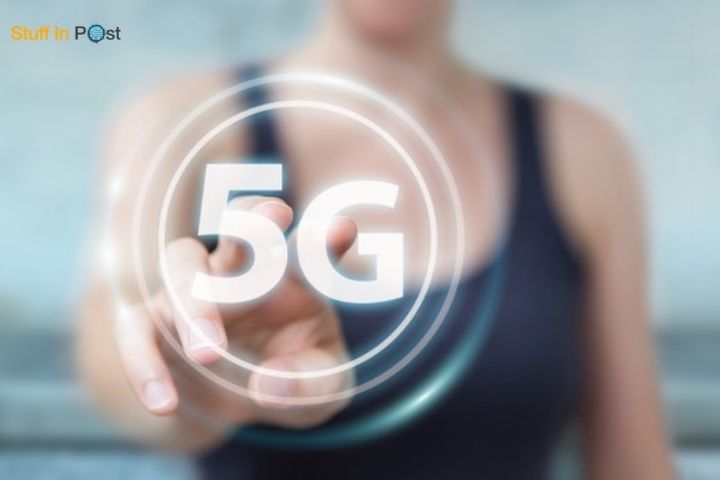5G Technology, Is It Dangerous For Health?

The arrival of 5G technology is giving a lot to talk about, as there are many who think that its wave frequency could affect health. Is this true? We tell you the myths and truths of the fifth generation.
Technology continues to advance, and proof of this is the expansion of 5G -or fifth generation of mobile phone technologies-, a new standard of mobile communications that is in the testing phase – it is estimated that 3 out of 4 Spaniards will be able to connect to this network before the end of the year – and it is quite promising. However, it seems that the advance does not seem to be to everyone’s liking, since a large number of people – self-described anti-5G – and some experts say that this type of frequency could cause health problems in the short and long term. Is this true? We analyze everything you need to know and what myths surround 5G.
What Is 5G And What Improvements Does It Offer
It is important to clarify what 5G is and what changes it entails in people’s daily lives. This technology is within the radio-electronic spectrum and non-ionizing radiation, which is similar to the waves used for television and radio, and its low frequency means that the transported energy cannot alter the electrons of materials or cells of the human being.
Smartphones that have 5G implemented emit with powers of about 0.5 watts and 5G base stations, around 60 watts, while, for example, many stations have been emitting waves with powers of up to 100,000 watts for decades.
The fifth-generation mobile network is going to change the way we communicate completely. The old 1G network only allowed calls between mobile phones, 2G introduced messages via SMS and then switched to an internet connection with 3G and its improvement with broadband, 4G, which allows you to play videos in real-time or reality increased.
Connected To Everything, All Day And In The Shortest Possible Time
The changes that would come from the hand of 5G mobile technology would be focused on a higher speed of the network, which would make it possible to surf ten times faster than before, up to 20 Gbps (gigabytes per second), which means downloading a movie in a few seconds, watch videos in 4K and high definition without the need to install large processors, as it can be accessed quickly with the cloud – virtual storage that does not consume memory and is always available, wherever you are.
Another big change will be that of latency, that is, the time it takes for the network to respond, which could be reduced from about 30 milliseconds it takes with 4G to just five milliseconds with 5G, allowing the connection to be practically in real-time, according to a report from the Scientific Advisory Committee on Radio Frequencies and Health (CCARS). This positive impact can be seen in sectors such as health, with the example of a remote surgical operation, or tourism and transport, such as autonomous driverless cars, in which this improvement would increase safety since it would allow acting more quickly before any problem.
With this new technology, the number of connected devices will also increase –which can reach up to more than 10,000 devices per km²–, such as cars, street furniture, the home alarm or any electronic device that we have at home, such as the refrigerator, the washing machine. Or the dishwasher, making the so-called internet of things and Smart Cities possible. And all this with greater energy efficiency, since 5G consumes less energy when emitting indirect frequency.
Is 5G Dangerous For Health?
Although there are many advantages that the installation of 5G networks promises to bring, there are many who defend that this new technology could cause health problems in the short and long term. That is why a group has been created against this new frequency, which have called themselves anti-5G, and which have carried out many demonstrations in countries around the world.
For example, some experts warn that the deployment of the fifth generation is being carried out without evaluating its possible effects on health and the environment. They also state that in 2017 the World Health Organization (WHO) declared wireless technologies as a level 2B
However, this cataloguing is very generic, as it also includes other products such as pickled gherkins, coffee or aloe vera, according to the list of carcinogens of the International Agency for Research on Cancer. To get a better idea, alcoholic beverages or meats that have been processed, such as hot dogs or cold cuts, are at higher risk according to this list.
Other platforms such as International Appeal, Stop 5G on Earth and in Space defend that radio frequency can cause the following problems, and they justify it with studies:
- Alteration of the heart rhythm, according to a study by the Institute of Biophysics of RF.
- Electromagnetic hypersensitivity.
- More exposure to free radicals, as reflected in the journal Environmental Pollution.
- Miscarriage, according to an investigation by the Institute of Environmental Health and Safety of Related Products, Chinese Center for Disease Control and Prevention.
- Deterioration of sperm quality, collected in the journal Reproduction.
- More obesity and diabetes, according to a research article in the Journal of Electromagnetic Biology and Medicine.
- Alteration in metabolism, according to a 2011 study.
- DNA damage, as exposed in a 2017 Indian investigation.
- Cancers, collected in the International Journal of Oncology.
- Cognitive impairment, according to a publication in the International Journal of Toxicology.
- In 2018, the European Committee on Emerging Risks established that 5G had a rating of 3 out of 3 in potential damage to wildlife, although they also warned that this is due to ignorance and lack of studies in this regard.
However, as the experts defend, most of these studies have been carried out in small populations or are not done with the true frequency that 5G mobile telephony will have when it is fully implemented.
“The levels of exposure to foreseeable electromagnetic emissions will not change significantly with 5G”.
With regard to 5G, the WHO states that after many investigations it has not found a relationship of this technology with any adverse effect on health, since the conclusions are drawn and that question the safety of the fifth generation has been analyzed in very few studies with the actual frequency that 5G networks will use. In addition, the organization itself has stated that it is conducting a risk assessment of exposure to radio frequencies that will be published in 2022.
The World Health Organization (WHO ) states that the only thing that is proven to cause radio frequency in people is insignificant heating of the tissues of the human body. They explain that as the frequency increases, there is less penetration into body tissues and absorption is only carried out through the surface, specifically through the skin and eyes. However, he reassures saying that as long as the exposure remains below international guidelines, there is no danger to public health. These limitations are up to 300 GHz, as indicated by the International Commission for Protection against Non-Ionizing Radiations and the Institute of Electrical Engineers.
The Scientific Advisory Committee on Radio Frequencies and Health (CCARS) has produced a detailed report with the scientific evidence that exists in relation to the effects of 5G, in which it is warned that “it is expected that the foreseeable exposure levels will not change significantly and, in any case, they may not exceed the maximum permitted limits that guarantee public health regarding electromagnetic emissions”. While the European Union has reported that exposure to mobile networks are 50 times lower than the levels that international scientific evidence establishes that they can cause health problems.
Can They Spy On Our Thanks To 5G?
Another argument against 5G is based on the fact that this technology will serve to spy on us. Although it is true that the fifth generation is presumably going to open the doors to new cyber attacks, service providers will have to respond to these security challenges when they develop 5G. These challenges have led the European Union to establish a series of instruments and measures to maintain the security of citizens.
The Council of the European Union had a meeting on June 9, 2020, in which the issue of the configuration of the digital future in Europe was discussed and in which it was established that there was no scientific evidence solid enough to affirm that 5G could be harmful to the health of people or the environment, also warning that the dissemination of this type of false information must be fought.
Therefore, and in conclusion, to all the above, the main authorities explain that we should not worry about the effects of the fifth generation, although we still have to know the results of the numerous investigations that the World Health Organization is carrying out ( WHO) and that we can discover in 2022.
Also Read : What Is 5G Technology And How Will It Change Our Lives?


